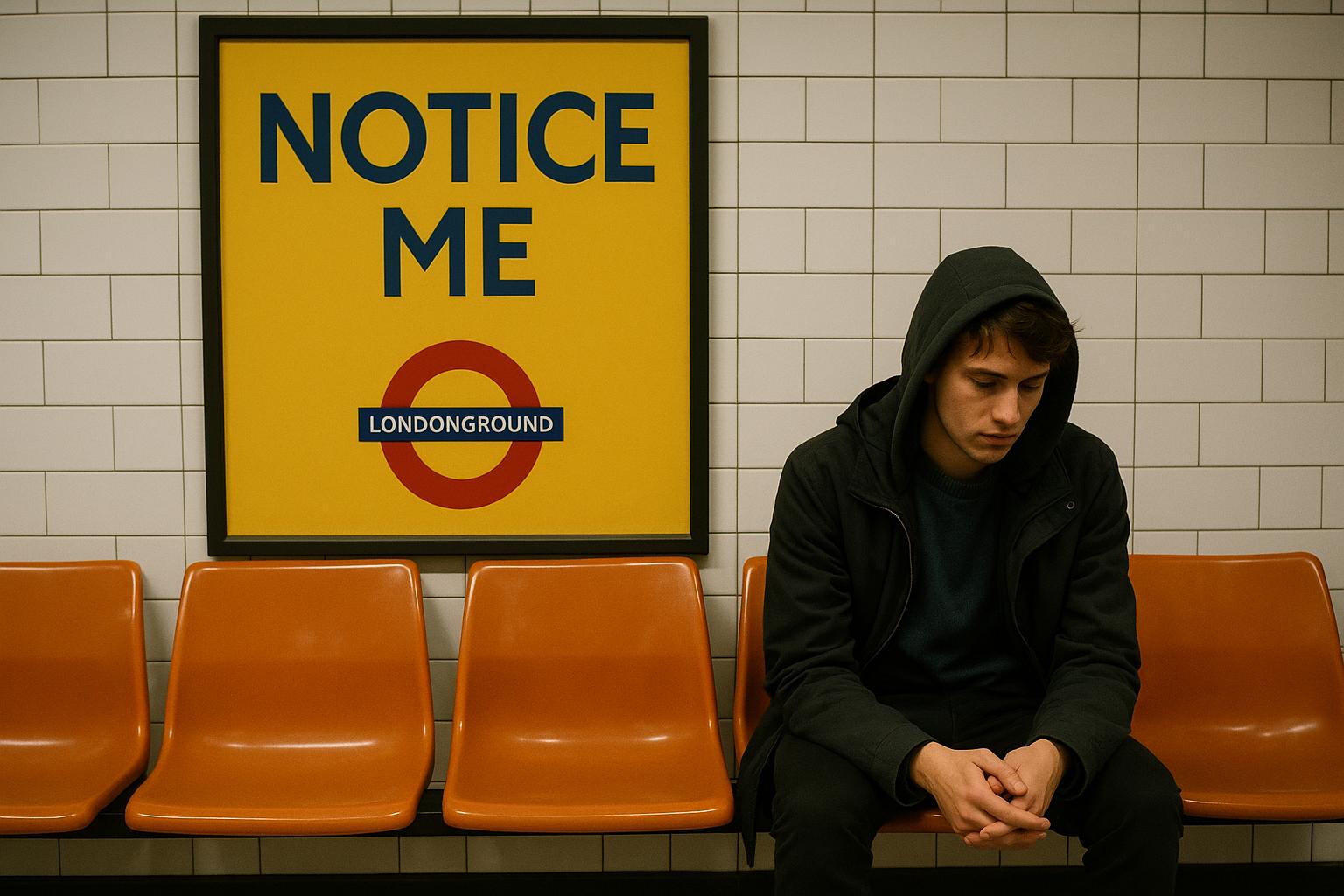A new call-to-action is resonating through London’s transport network, urging commuters to look up from their phones and offer seats to pregnant and disabled passengers. This grassroots sentiment, sparked by a viral LinkedIn post from Londoner Lucy Baker, highlights a persistent issue faced by many on the capital’s public transport: physically able passengers absorbed in their devices neglecting those who need seats more.
Baker’s post, which called for better floor signage on the Tube to catch distracted commuters’ attention, struck a chord. “People don't seem to be giving up their seats for pregnant or disabled people. Not because they aren't kind. More often, they're just staring down at their phones,” she told Transport for London (TfL). She suggested a change in signage placement, advocating notices placed at ground level where commuters tend to look less frequently, to encourage them to become more aware of their surroundings. TfL responded with a trial of “Look Up” stickers on the Docklands Light Railway and is now considering expanding this initiative network-wide.
To bolster the campaign, Baker created a parody video using the tune of The Jam’s “Going Underground,” singing about the frustration of commuters not offering their seats in crowded conditions. The movement has found support among pregnant women and those with invisible disabilities who endure physical pain yet struggle to receive the empathy they need during busy travel. London artist Michelle Baharier, who has an invisible spinal disability, described the daily challenge of quietly requesting a seat, a situation compounded when others do not notice their condition. “If people could just look up once in a while, it might make commuting much more comfortable for other passengers,” she said.
TfL has been actively working to promote inclusivity and awareness around priority seating for several years. In December 2024, TfL launched a campaign featuring posters designed by children aged 6-14, aimed at encouraging passengers to offer their seats to those in need. This initiative, introduced on the International Day of Persons with Disabilities, reflects a broader effort by TfL to foster a culture of consideration and accessibility across its network.
Further reinforcing this ethos, in April 2025, TfL unveiled a refreshed design for priority seats with higher contrast colours and clearer signage to make these seats more easily identifiable. This accompanied Priority Seating Week, during which Deputy Mayor for Transport Seb Dance urged Londoners to remain mindful of passengers with non-visible health conditions who might need seats but often go unnoticed.
TfL’s commitment dates back even earlier. The “Please Offer Me A Seat” badge scheme, launched in 2017, allows passengers with invisible disabilities to discreetly signal their need for a seat. Marking its fifth anniversary in 2022, TfL reported nearly 100,000 badges issued and continued awareness campaigns through posters and information stands across the city’s transport network.
The “Look Up” campaign itself is not new. TfL had previously supported a similar customer-led initiative in 2018, encouraging commuters to raise their heads and consider those around them, especially passengers with disabilities who might otherwise be overlooked. TfL integrated “Look Up” messaging into station and train announcements and displayed promotional posters to foster a culture of kindness and consideration.
Despite these ongoing efforts, the persistence of seating issues on London’s public transport reveals the complexities in changing commuter behaviour, especially regarding mobile phone use. The latest push, inspired by everyday passengers like Baker and supported by TfL’s wider accessibility efforts, aims to cultivate greater empathy by tapping into simple human awareness—looking up and noticing who might need a seat more than oneself.
📌 Reference Map:
- Paragraph 1 – [1]
- Paragraph 2 – [1]
- Paragraph 3 – [1]
- Paragraph 4 – [2]
- Paragraph 5 – [3]
- Paragraph 6 – [4]
- Paragraph 7 – [6]
Source: Noah Wire Services
